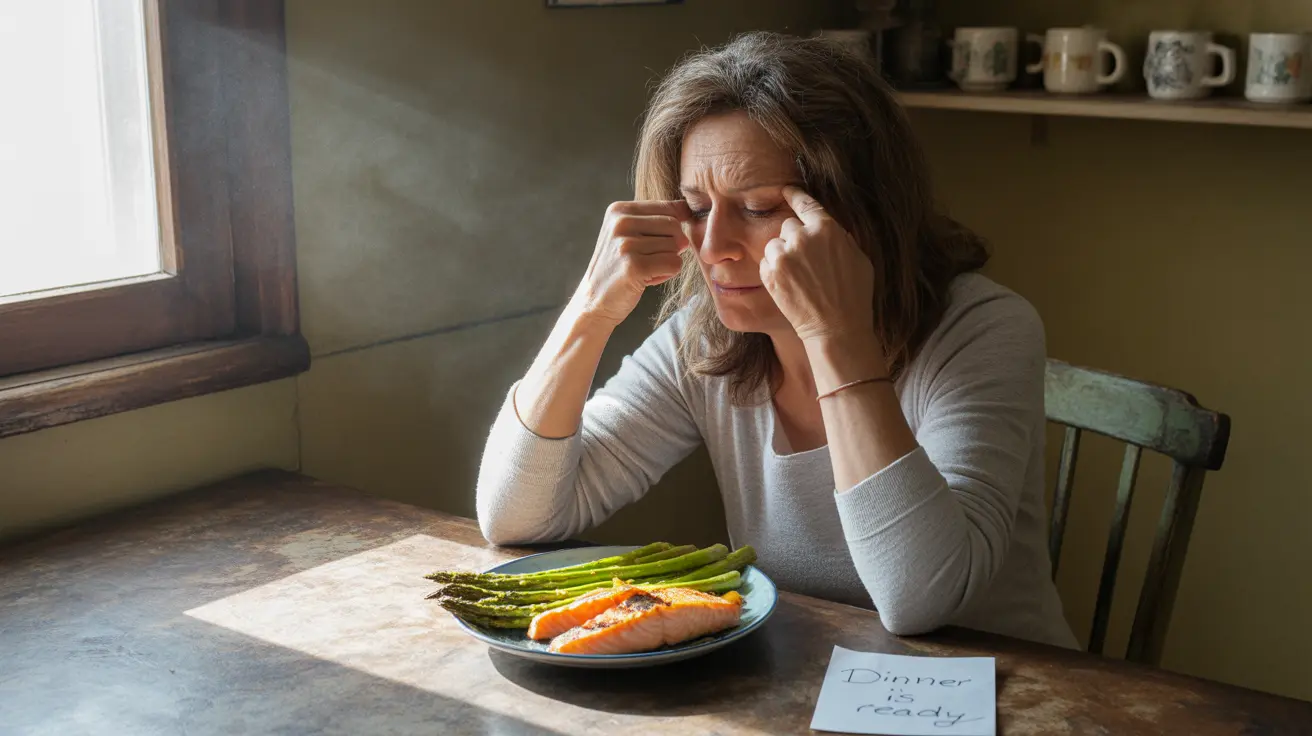When you're dealing with a sinus infection, the last thing on your mind might be food. The connection between sinus infections and decreased appetite is more common than you might think, affecting many people during their illness. Understanding this relationship can help you manage your symptoms better and maintain proper nutrition during recovery.
This comprehensive guide explores why sinus infections can impact your appetite, how to distinguish them from common colds, and what steps you can take to maintain healthy eating habits while fighting the infection.
How Sinus Infections Affect Your Appetite
Sinus infections can diminish your desire to eat through several mechanisms. The inflammation in your sinuses affects your sense of smell, which is closely linked to taste perception. Additionally, post-nasal drip can create an unpleasant taste in your mouth, making food seem less appealing.
The body's inflammatory response during a sinus infection can also trigger the release of chemicals that naturally suppress appetite. This temporary loss of appetite is your body's way of conserving energy to fight the infection.
Distinguishing Between Sinus Infections and Colds
Key Differences in Symptoms
While both conditions can affect your appetite, several distinctive features can help you identify a sinus infection:
- Facial pressure and pain, especially around the sinuses
- Thick, discolored nasal discharge
- Symptoms lasting longer than 10 days
- Bad breath
- Dental pain
- Reduced sense of smell and taste
Duration and Progression
A common cold typically improves within a week, while sinus infection symptoms often persist longer and may worsen after the first week. This extended duration can have a more significant impact on your appetite and overall well-being.
Managing Symptoms and Improving Appetite
Medical Treatments
Several treatment approaches can help alleviate sinus infection symptoms and restore your appetite:
- Nasal decongestants
- Saline nasal irrigation
- Over-the-counter pain relievers
- Prescribed antibiotics (for bacterial infections only)
Dietary Strategies
Even with a reduced appetite, maintaining proper nutrition is crucial for recovery. Consider these approaches:
- Eating smaller, more frequent meals
- Choosing nutrient-dense foods
- Staying well-hydrated
- Consuming warm broths and soups
- Including immunity-boosting foods in your diet
Nutritional Support During Recovery
Focus on these types of foods to support your recovery:
- Vitamin C-rich fruits
- Lean proteins
- Clear broths and soups
- Herbal teas with honey
- Anti-inflammatory foods
- Probiotic-rich foods
When to Seek Medical Attention
Consult a healthcare provider if you experience:
- Severe facial pain or headaches
- Fever lasting more than 3-4 days
- Significant appetite loss affecting your daily functioning
- Symptoms persisting beyond 10-14 days
- Worsening symptoms after initial improvement
Frequently Asked Questions
Why does a sinus infection cause loss of appetite?
A sinus infection can cause loss of appetite due to inflammation affecting your sense of smell and taste, post-nasal drip creating unpleasant tastes, and the body's inflammatory response naturally suppressing hunger signals while fighting the infection.
How can I tell the difference between a sinus infection and a common cold?
Sinus infections typically last longer than colds (over 10 days), cause more severe facial pain and pressure, and often produce thick, discolored nasal discharge. They may also cause dental pain and more significant loss of smell and taste compared to colds.
What treatments help relieve sinus infection symptoms and improve appetite?
Effective treatments include nasal irrigation, decongestants, pain relievers, and potentially antibiotics for bacterial infections. Additionally, staying hydrated and using steam therapy can help clear sinuses and gradually improve appetite.
Which foods are best to eat when I have a sinus infection to support recovery?
Focus on nutrient-rich foods like clear broths, vitamin C-rich fruits, lean proteins, and anti-inflammatory foods. Warm soups, herbal teas with honey, and probiotic-rich foods can also support recovery while being easier to consume with a reduced appetite.
When should I see a doctor if my sinus infection causes loss of appetite or worsens?
Seek medical attention if you experience severe facial pain, persistent fever, significant appetite loss affecting daily life, symptoms lasting beyond 10-14 days, or worsening symptoms after initial improvement.




